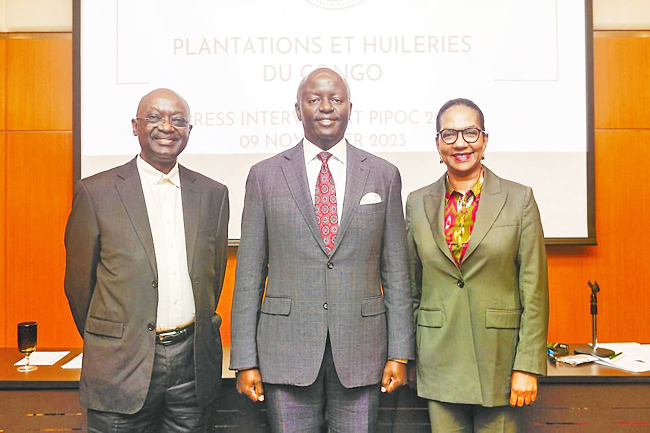ANN/THE SUN – Democratic Republic of Congo-based company Plantations et huileries du Congo (PHC) eyes partnerships with Malaysian palm oil players, driven by its ambitions to increase its palm oil production capacity so as to fulfil its high domestic demand.
PHC is the largest industrial palm oil producer in DR Congo.
According to chief executive officer and director general Monique Gieskes, Malaysia has a mature palm oil market and the company is seeking to collaborate with local players, to increase its current production capacity, in supporting its rapid plans for expansion.
“We have aggressive ambition, not only to grow the business but also to expand it. The key partner we want to bring in is Malaysia.
“For our extension and development, we are looking for Malaysia’s expertise, support, partnership to grow and expand our business,“ she told reporters during a press conference at the International Palm Oil Congress and Exhibition 2023 (Pipoc 2023).
Gieskes said that it is open to talking with potential investors and partnerships with local palm oil industry players.

She shared that it is in initial talks with the Malaysian Palm Oil Board (MPOB) for a potential memorandum of understanding, which is expected to be finalised early next year.
Gieskes remarked that it will be mutually beneficial for both parties, as PHC will be able to utilise MPOB’s technical expertise in the palm oil production, while Malaysia can leverage on its breeding programme.
“The first collaboration we see is the development of our breeding programmes . We have our own genetic resources that are available for development and we seek support and expertise from Malaysia to support us into further developing our breeding programmes,” she said.
Moving forward, the company plans to expand the capacity of its mills and erect new ones, install palm oil mill effluent treatment facilities for zero discharge in the environment, biogas production and energy generation, establish a crude palm oil refinery and invest in business support logistic services.
Currently, it has capacity of about 80,000 tonnes annually which it plans to increase to two million tonnes in seven to eight years.
With that, it is able to fulfil domestic demand, which will allow it to export to other countries.
As for now, she said the company has received export requests from its neighbouring countries.
“First, we need to meet all our domestic demand before we can start exporting,“ she said, adding that extra production will be set aside for export.


